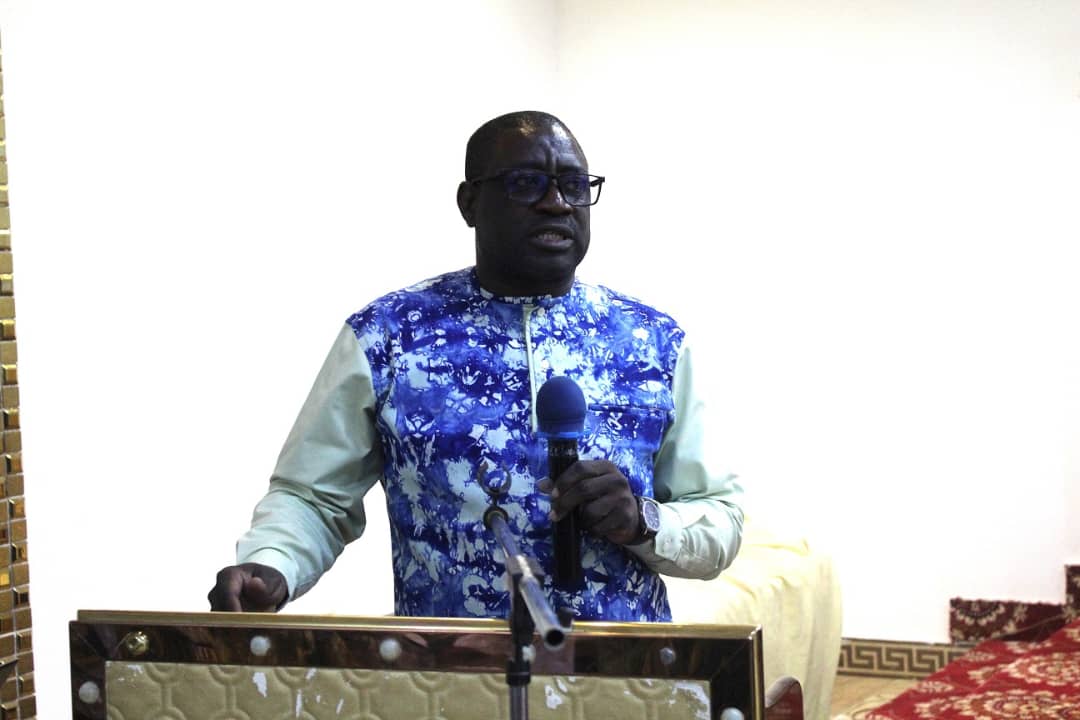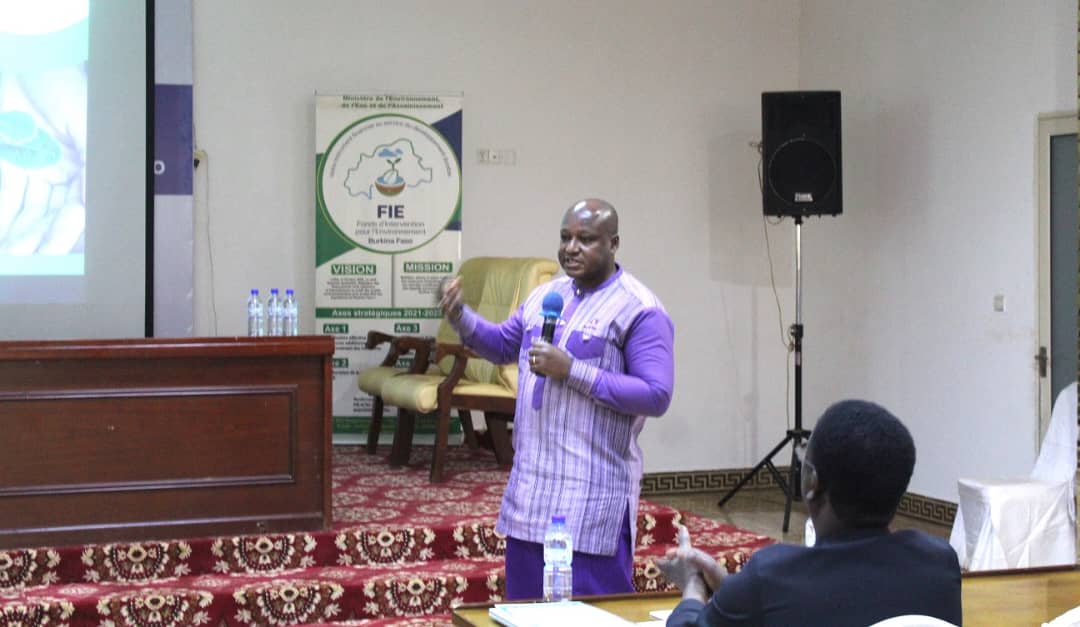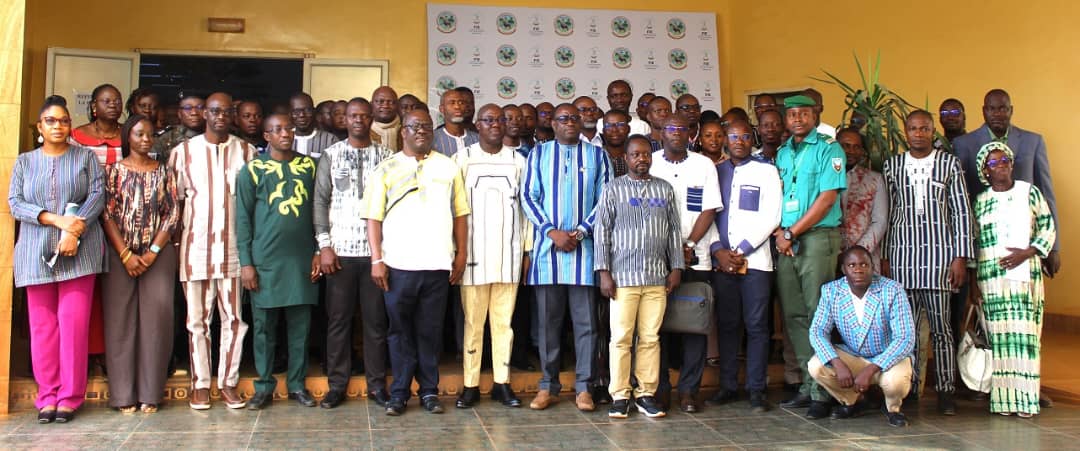THE FIE STRENGTHENS THE CAPACITIES OF ITS DIRECTORS
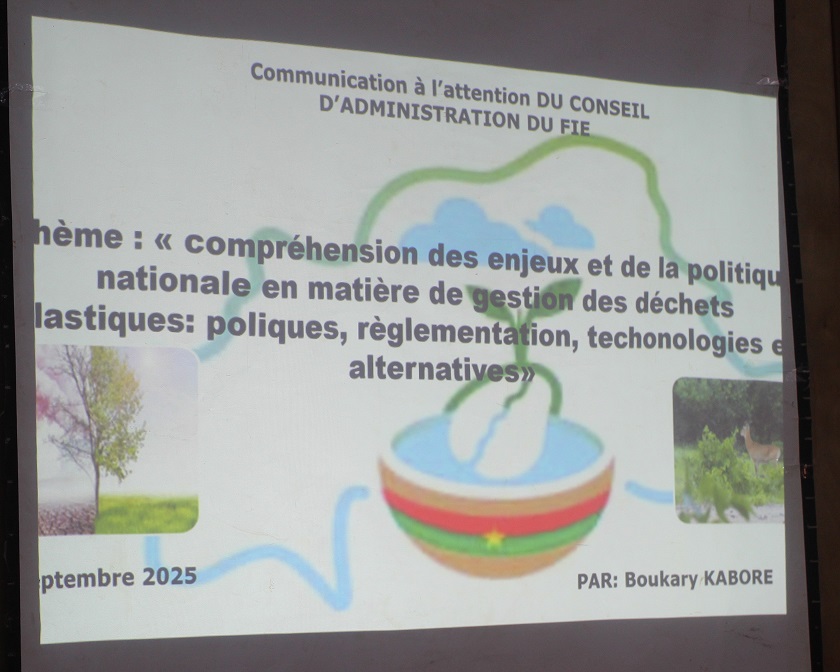
The Environmental Intervention Fund (FIE) strengthened the capacities of its administrators in Bobo-Dioulasso this Thursday, September 25, 2025, on plastic waste management.
The communication, delivered by the Head of the Regional Branch of the FIE Center, Boukary KABORE, focuses on the theme "understanding the issues and national policy in plastic waste management: policies, regulations, technologies and alternatives".
The Director General of the FIE, Delwendé Davy NANEMA, thanked the directors for their presence at this activity, noting that the objective is to strengthen the capacities of the directors to enable them to better fulfill their role.
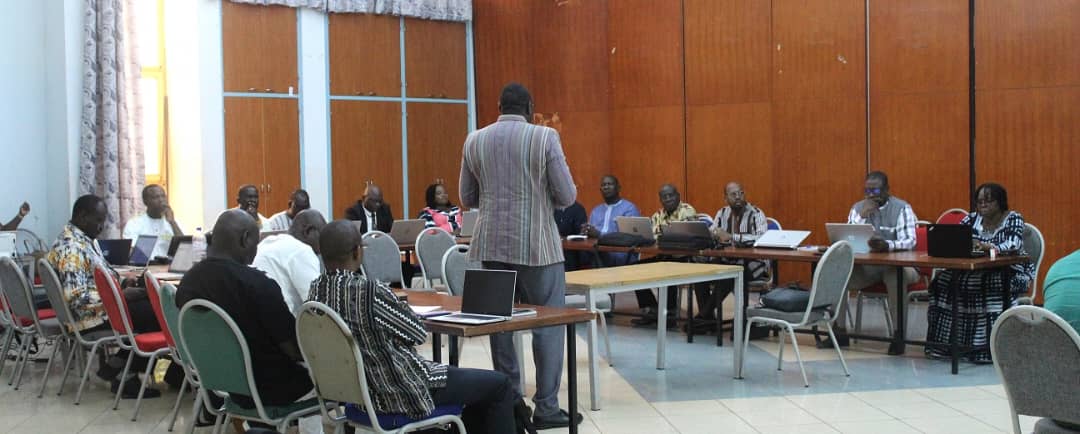
Thus, to achieve the objectives, the communicator explained the issues related to the use of plastic packaging and bags, including those related to alternatives to plastic; defined the environmental and health impacts related to the life cycle of plastic in order to allow participants to better master the political and legal framework for plastic waste management.
What is plastic? According to the speaker, plastics are synthetic or semi-synthetic materials made from polymers of long chains of molecules. These polymers can come from biological sources (such as biomass) or synthetic sources (such as fossil fuels).
Mr. Kabore emphasized that thanks to their malleability under heat and pressure, plastics can be shaped into a multitude of forms. He continued that plastic is made from synthetic polymers, mainly derived from crude oil, natural gas, coal, or plant sources.
The speaker noted that there are three main families of plastics: thermoplastics, thermosets, and elastomers. Thermoplastics can be melted and reshaped multiple times. More than 75% of the plastic used worldwide falls into this category. Unlike other types of plastics, thermoplastics are, for the most part, recyclable, and mechanically.
In his presentation, Boukary Kabore discussed the challenges of recycling, which are linked to the fact that compostable plastics cannot be recycled with conventional plastics and can contaminate recycling streams; inadequate sorting systems make it difficult to separate compostable plastics from recyclable plastics ; and limited infrastructure and low collection rates prevent effective industrial composting.
According to the communicator, the statistics on plastic pollution are alarming: plastic waste represents approximately 80% of marine litter (UNFCCC, 2024) and 14 million tons of plastic are dumped into the ocean each year ( Earth Day Network, 2022).
The sources of proliferation include unsustainable production and consumption patterns; population growth and rapid urbanization; the low technical and financial capacity of local authorities and the private sector; and the poor organization of plastic waste management stakeholders. In addition, there is the low cost of plastic packaging and bags and their widespread free distribution; the ecological incivility of the population; insufficient public education and awareness of the dangers of plastic; and the low level of regulatory enforcement.
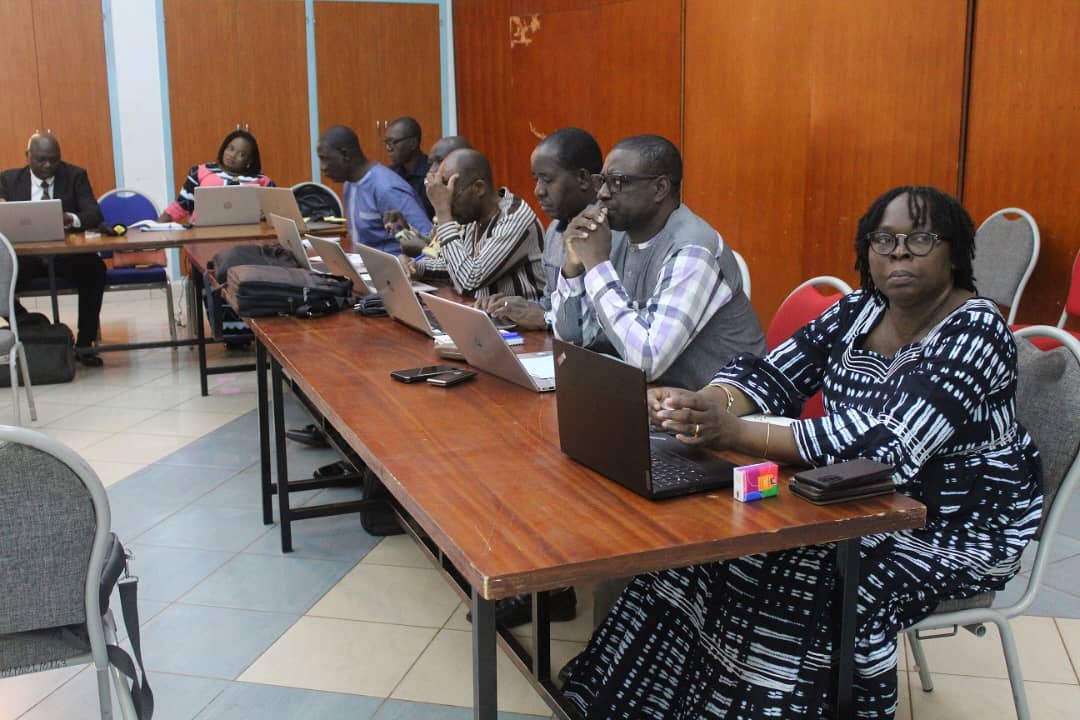
The communication helped administrators understand that plastic bags have many environmental impacts: impacts on wildlife: entanglement, ingestion, and death; soil contamination - microplastics seep into the soil; impact on agriculture - microplastics disrupt soil structure, nutrient cycling, and food production; economic and health effects: reduces quality of life, harms tourism, decreases real estate values, and creates health risks; terrestrial environments most affected: landfills, urban areas, and agricultural fields.
Regarding the environmental issues of plastic bags, the communicator notes that they relate to the obstruction of rainwater drainage channels leading to flooding, soil erosion; pollution of terrestrial and aquatic ecosystems, threats to biodiversity (trapped animals, poisoned animals, etc.), the reduction of water resources (water tables, rivers, etc.)
The speaker focused on the challenges related to plastic waste management in Africa, which include, among others, the lack of national investment; weak environmental legislation and enforcement; insufficient delegation of powers; limited municipal budgets that present major constraints; and inadequate financing for the development of the waste sector. The speaker concluded his presentation by presenting the political and legal framework related to plastic bags and packaging.
The presentation was followed by questions and answers which shed more light on the issue of plastic waste and its management for the participants.
As a reminder, the FIE launched call for projects 4 relating to the management of plastic waste, costing more than one billion FCFA, in line with the dynamics of law 045 -2024/ALT of December 30, 2024 relating to plastic packaging and bags in Burkina Faso.
DCRP/FIE
 English
English  Français
Français 


